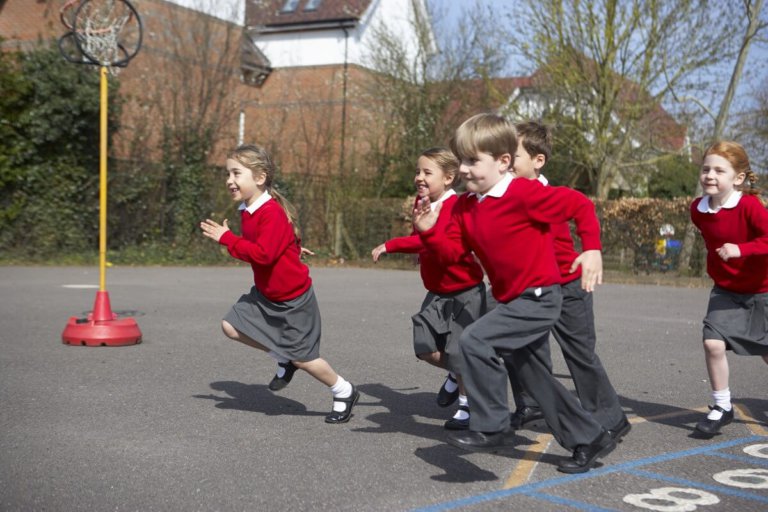
The discussion around gender inequality is steadily gaining traction, and the education realm is also starting to take note.
Gender is typically seen as binary – male and female. While individuals who identify themselves as non-binary – a term to describe genders that don’t fall into one of these two categories – are also gaining prominence, gender stereotypes continue to exist and can affect student achievement.
For instance, one study has found that female students who are taught by teachers with “traditional gender views” have lower performance in math and verbal tests. The effect is “amplified” with longer exposure to the same teacher, said researchers.
In a report by social enterprise Lifting Limits, Professor Dame Alison Peacock, Chief Executive of the Chartered College of Teaching and Patron of Lifting Limits, was quoted saying: “The Early Years and Primary phases are of crucial importance developmentally and the influence of teachers and other trusted adults within school should never be underestimated.”
Meanwhile, Professor Gina Rippon, Professor Emeritus of Cognitive Neuroimaging, Aston University, highlighted that gender stereotypes affect children’s views about their abilities and aptitudes to their potential achievements and probable failures.
She added that such messages are relayed to children in numerous ways, such as by the toys they’re given to play with (e.g. LEGO and tractors are “boy toys” and dolls and prams are “girl toys”) and the language used to describe approval or disapproval of their successes or failures (what a pretty girl/what a brave little boy).
Children are also soaking in gendered attitudes and expectations from their environment, such as how the school nurse is female, so all nurses must be female, or how the bus driver is a man so only men can be bus drivers, and drawing fixed conclusions about their world and their place in it.
“By the time they are about six years old, they have normally aligned themselves firmly to their own gender and made up their minds about what this means for them, what it means they can do and how they should behave. Sadly, this can also include firm beliefs about what they can’t do; six-year olds don’t think girls can be ‘really, really clever’; nine-year old girls think maths is a ‘boy thing’ and not for them,” said Professor Rippon.
Addressing gender inequality in schools

There are many negative implications that can arise from gender inequality. Source: Shutterstock
Lifting Limits explained in its report that gender stereotypes limit children’s futures when they see certain careers as ‘girl jobs’ and ‘boy jobs’.
“From the gender gap in attainment at the end of primary school, to the low numbers of women in engineering, from prolific sexual harassment to high levels of male suicide, gender stereotypes are bad for individuals and bad for society,” it said.
They added that gender stereotypes are unintentionally reinforced in school through the curriculum, books, language, staff assumptions and daily interactions with adults and peers, and that this happens at a crucial stage in pupils’ development.
However, primary schools can become “powerful agents of change” by adopting the right awareness and tools to recognise and correct unintentional gender bias.
Lifting Limits’ programme, which was tested in a year-long pilot study from September 2018 to July 2019 in five primary schools in the London Borough of Camden, is based on existing evidence of the need for a whole school approach to challenging gender stereotypes, involving all aspects of the school and all members of the school community.
Key aspects of the programme found to successfully drive change include: the whole school approach; the effectiveness of the staff training (Inset); assemblies; the appointment of a gender champion in school; and the breadth and quality of the programme resources. These aspects combined to introduce a ‘gender lens’ and to support schools and their staff in embedding and consolidating this awareness in their teaching, practice and interactions with children.
The results suggest Lifting Limits’ whole school approach is effective in disrupting gendered norms. Some of their recommendations include:
Government
- Conduct a larger-scale evaluated trial testing a whole school approach to challenging gender stereotypes in primary schools nationally.
- Allocate funding for specialist organisations to support schools and middle tier organisations in challenging gender stereotyping and promoting gender equality.
Schools
- Implement a whole school approach, covering school ethos, organisation, teaching practices and curriculum, to challenge gender stereotyping and promote gender equality, with explicit and visible support from school leadership.
OFSTED
- Introduce specialist training to equip Inspectors to bring a ‘gender lens’ to inspections.
Liked this? Then you’ll love…
Improving the accessibility of art education in schools
English Language classes must instil more global skills in students







